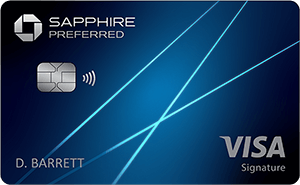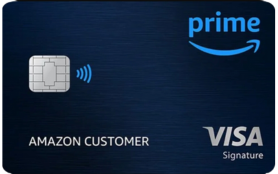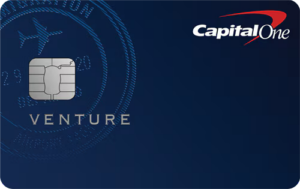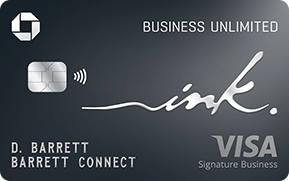What is the importance of savings and investments?
Savings and investments are crucial for achieving financial stability, growth, and meeting long-term goals. Savings provide a safety net for emergencies and short-term needs, while investments allow your money to potentially grow over time, outpacing inflation and generating additional income. By combining both, you can build wealth and secure your financial future.
What is the difference between savings and investments?
Savings refer to money set aside from your income for short-term goals or emergencies. This is typically kept in easily accessible accounts like savings accounts or money market accounts, offering low risk and lower returns. Investments involve putting money into various assets, such as stocks, bonds, real estate, or mutual funds, with the aim of generating higher returns over a longer period, but with increased risk.
How does compounding impact savings and investments?
Compounding is a powerful financial concept that works in favor of both savings and investments. In savings, the interest earned on your initial deposit accumulates over time, and you also earn interest on the accumulated interest. In investments, your earnings (like dividends or capital gains) get reinvested, leading to exponential growth. Starting early allows more time for compounding to work its magic, resulting in substantial wealth accumulation.
What are the different risk levels associated with savings and investments?
Savings are relatively low-risk, especially when kept in insured bank accounts, but they offer lower potential returns. Investments carry higher risk due to market fluctuations, but they also offer the potential for higher returns. It’s important to assess your risk tolerance – your ability and willingness to withstand market volatility – and align your savings and investment choices accordingly.
What factors should one consider when choosing savings options?
When selecting savings options, factors such as accessibility, liquidity, and safety come into play. Look for accounts with competitive interest rates, low fees, and FDIC (or equivalent) insurance to protect your deposits. Consider your goals – whether it’s an emergency fund, a down payment on a house, or a vacation – and choose accounts that provide the right balance of interest and accessibility.
What factors should one consider when making investment decisions?
Investment decisions depend on your goals, risk tolerance, and investment horizon. Diversification is key – spreading your investments across different asset classes can help manage risk. Understand the investment options available, research historical performance, and consider seeking advice from financial professionals. Stocks offer potential for high returns but come with higher volatility. Bonds are generally less risky but offer lower returns. Real estate and mutual funds also provide options for diversification. Regularly review and adjust your investment portfolio as your goals and market conditions change.
In an increasingly digital world, a free online banking account has become a cornerstone of modern financial management.
These virtual banking solutions offer a convenient and secure way to handle your money without the constraints of traditional brick-and-mortar banking. As we navigate the digital age, understanding the importance of online bank accounts and making informed choices about the best options available is crucial.
A free online banking account provides the flexibility to manage your finances from anywhere, at any time, eliminating the need to visit physical branches during specific hours. This accessibility is especially beneficial for those with busy lifestyles or limited mobility. Additionally, online accounts often come with fewer fees and higher interest rates compared to traditional banks. Moreover, the advanced security measures employed by reputable online banks ensure that your funds and personal information are well-protected.
Let’s dive into some of the best online bank accounts—exploring their features, benefits, and potential drawbacks to help you make an informed decision about which option suits your financial needs best.
1. Ally Bank
Who’s it best for? Individuals seeking a well-rounded free online banking account and experience with competitive rates and no monthly fees.
Ally Bank is renowned for its customer-centric approach and comprehensive suite of online banking services. With no monthly maintenance fees and competitive interest rates, Ally Bank offers a user-friendly experience tailored to meet the needs of both everyday customers and seasoned investors. Their intuitive online platform provides easy access to accounts, transactions, and account history, making it a breeze to manage your finances effectively.
Key features of Ally Bank:
- No monthly fees: One of the standout features of Ally Bank is its lack of monthly maintenance fees, allowing you to keep more of your hard-earned money.
- High-yield savings: Ally offers a high-yield savings account that helps your money grow faster with competitive interest rates.
24/7 customer service: Ally is renowned for its exceptional customer service, available round the clock to address your concerns and queries. - User-friendly online experience: The bank’s website and mobile app are designed with user-friendliness in mind, offering straightforward navigation and ease of use.
Strong security measures: Ally Bank employs advanced security measures to safeguard your data and funds, including two-factor authentication and encryption protocols.
Pros:
- Competitive interest rates.
- No monthly fees.
- Excellent customer service.
- Intuitive online and mobile interfaces.
Cons:
- Limited physical branches (online-only model).
- Fewer advanced investment options compared to specialized investment platforms.
Bottom line: Ally Bank stands as a prime example of a well-rounded online bank account that caters to various financial needs while offering a seamless online experience.
2. Chime
Who’s it best for? Individuals who prioritize early access to their paychecks, fee-free banking, and automatic savings features.
Chime has gained popularity for its innovative features and fee-free approach to banking. One of its standout features is the ability to get paid up to two days early when you set up direct deposit, providing a helpful advantage in managing your finances. Chime’s “Save When You Get Paid” feature automatically transfers a percentage of your direct deposit into your savings account, fostering a consistent savings habit.
Key features of Chime:
- Early direct deposit: Chime offers the perk of receiving your paycheck up to two days earlier than traditional banks when you set up direct deposit.
- Automatic savings: The automatic savings feature helps you save effortlessly by transferring a portion of your direct deposit into your savings account.
- No hidden fees: Chime stands out for its fee-free banking approach, including no monthly fees, overdraft fees, or minimum balance requirements.
- Mobile app integration: The Chime mobile app provides a user-friendly interface for managing your accounts, budgeting, and tracking your spending.
- Chime Visa® Debit Card: The debit card provides instant transaction alerts and the option to round up purchases to save spare change.
Pros:
- Early access to paychecks.
- Automatic savings features.
- No hidden fees.
- User-friendly mobile app.
Cons:
- Limited investment options.
- Lack of physical branches.
The bottom line: Chime offers a modern banking experience that aligns with the financial habits of a tech-savvy generation.
Navigator Tip
Prioritize security. Highlight the robust security measures, like encryption and two-factor authentication, employed by these banks. This ensures users’ personal data and funds are well-protected, fostering confidence in their online banking choice.
3. Capital One 360
Who’s it best for? Individuals seeking a seamless integration of online banking with the convenience of physical branches.
Capital One 360 is the digital arm of Capital One, a bank that seamlessly blends online banking with a physical presence. This hybrid approach allows customers to enjoy the convenience of online banking while also having access to over 40,000 fee-free ATMs and physical branches for in-person assistance.
Key features of Capital One 360:
- Physical presence: Capital One 360 offers a hybrid experience, providing access to physical branches and fee-free ATMs, catering to customers who value both digital convenience and in-person support.
- 360 checking and savings: These accounts come with competitive interest rates, no monthly fees, and no minimum balance requirements.
- Mobile app integration: The Capital One mobile app offers a user-friendly interface for managing your accounts, tracking spending, and making mobile check deposits.
- Overdraft options: Capital One 360 provides overdraft protection options to prevent declined transactions and hefty overdraft fees.
- Person-to-person payments: The platform allows for easy person-to-person payments via Zelle® integration.
Pros:
- A hybrid model with physical branches.
- Competitive interest rates.
- No monthly fees.
- Overdraft protection options.
Cons:
- Interest rates might be lower than some online-only banks.
- Limited advanced investment options.
The bottom line: Capital One 360 caters to individuals who value the option of both digital and in-person banking services.
4. Marcus by Goldman Sachs
Who’s it best for? Savers looking for high-yield savings accounts with no fees and a strong reputation.
Marcus by Goldman Sachs offers a straightforward approach to online banking with a focus on savings accounts and personal loans. Known for its competitive interest rates and fee-free structure, Marcus provides a reliable platform for individuals aiming to grow their savings without the hassle of unnecessary charges.
Key features of Marcus by Goldman Sachs:
- High-yield savings: Marcus offers high-yield savings accounts with attractive interest rates to help your savings grow faster.
- No monthly fees: The absence of monthly maintenance fees means more of your money stays in your account.
- CD options: Marcus offers certificates of deposit (CDs) with various term lengths, allowing you to lock in competitive rates for your savings.
- Personal loan services: In addition to savings accounts, Marcus provides personal loans with transparent terms and no fees.
- Mobile app access: The Marcus mobile app offers easy access to your accounts, transactions, and savings progress.
Pros:
- Competitive interest rates.
- No monthly fees.
- Access to personal loan services.
- Transparent CD options.
Cons:
- Limited investment options beyond savings and CDs.
- Lack of additional banking services.
The bottom line: Marcus by Goldman Sachs is an ideal choice for individuals focused on growing their savings with minimal fees and competitive rates.
Navigator Tip
Discuss the user-friendliness of the mobile apps offered by these banks. Emphasize features like easy account management, spending tracking, and mobile check deposits, which enhance the overall convenience of digital banking.
5. Discover Bank
Who’s it best for? Cashback enthusiasts and individuals looking for a free online banking account with a wide range of services.
Discover Bank offers a comprehensive suite of online banking services, including cashback rewards, high-yield savings accounts, and CDs. Its cashback rewards program sets it apart, providing an extra incentive for everyday spending while enjoying the benefits of an online bank.
Key features of Discover Bank:
- Cashback rewards: The Discover Cashback Debit account allows you to earn cashback rewards on qualifying purchases.
- High-yield savings and CDs: Discover offers high-yield savings accounts and CDs with competitive interest rates.
- No monthly fees: There are no monthly maintenance fees associated with Discover’s accounts.
- Free ATM access: Discover provides access to a vast network of fee-free ATMs nationwide.
- 24/7 customer support: Customer service is available around the clock to assist with inquiries and concerns.
Pros:
- Cashback rewards on debit purchases.
- High-yield savings options.
- No monthly fees.
- Extensive ATM network.
Cons:
- Limited physical branch presence.
- Some specialized investment options may be absent.
The bottom line: Discover Bank is a suitable choice for individuals looking for versatile online banking services with the added benefit of cashback rewards.
6. Schwab Bank
Who’s it best for? Investors seeking a bank with a strong focus on investment options and retirement accounts.
Schwab Bank, an online arm of Charles Schwab, offers a comprehensive range of banking and investment services. With a strong emphasis on investment accounts, retirement planning, and brokerage services, Schwab Bank caters to individuals looking to grow their wealth through various investment avenues.
Key features of Schwab Bank:
- Investment options: Schwab offers a wide range of investment accounts, including individual retirement accounts (IRAs), brokerage accounts, and managed portfolios.
- No ATM fees worldwide: Schwab Bank refunds all ATM fees worldwide, making it a great choice for frequent travelers.
- Checking account options: Schwab’s checking accounts come with no monthly fees and unlimited fee rebates for using non-Schwab ATMs.
- Educational resources: The bank provides extensive educational resources for investors and those planning for retirement.
- Customer support: Schwab offers robust customer support for both banking and investment-related inquiries.
Pros:
- Extensive investment options.
- No ATM fees worldwide.
- Wide range of educational resources.
- No monthly fees for checking accounts.
Cons:
- Limited traditional banking services.
- Complex for individuals seeking a simple banking experience.
The bottom line: Schwab Bank suits individuals who prioritize investment options and retirement planning within their banking experience.
7. Varo Bank
Who’s it best for? Individuals looking for a fully mobile banking experience with early direct deposit and no fees.
Varo Bank is a mobile-first banking option that offers early direct deposit, fee-free banking, and various financial tools designed to help you manage your money effectively. With its emphasis on simplicity and accessibility, Varo caters to those who prefer handling their finances primarily through their mobile devices.
Key features of Varo Bank:
- Early direct deposit: Varo Bank allows for early access to your paycheck when you set up direct deposit.
- No monthly fees: There are no monthly maintenance fees associated with Varo Bank accounts.
- Save your change: The platform automatically rounds up your purchases to the nearest dollar and saves the spare change.
- No foreign transaction fees: Varo Bank doesn’t charge foreign transaction fees, making it a convenient option for international travelers.
- Mobile-only interface: Varo Bank’s mobile app serves as the primary interface for managing accounts, making deposits, and transferring funds.
Pros:
- Early access to paychecks.
- Automatic savings feature.
- No monthly fees.
- No foreign transaction fees.
Cons:
- Limited traditional banking services.
- Lack of physical branches.
The bottom line: Varo Bank is an excellent choice for those who prefer a fully mobile banking experience with simplified tools for managing their finances.
8. Simple
Who’s it best for? Individuals seeking a streamlined and user-friendly online banking experience with budgeting tools.
True to its name, Simple offers a simplified and user-friendly approach to online banking, combined with robust budgeting tools. With its emphasis on helping customers save and budget effectively, Simple is an ideal choice for those who value financial clarity and guidance.
Key features of Simple:
- Budgeting tools: Simple’s mobile app offers integrated budgeting tools that help you categorize spending and set savings goals.
- Safe-to-spend: The platform calculates a “Safe-to-Spend” amount by subtracting upcoming bills and savings goals from your account balance.
- No fees: Simple doesn’t charge monthly fees, overdraft fees, or other common banking fees.
- Shared accounts: Simple allows you to create joint accounts and share financial goals with others.
- Customer support: The bank provides customer support for any inquiries or assistance needed.
Pros:
- User-friendly budgeting tools.
- No monthly fees or overdraft fees.
- Safe-to-Spend feature.
- Shared accounts option.
Cons:
- Limited investment options.
- No physical branches.
The bottom line: Simple offers an intuitive online banking experience with an emphasis on budgeting tools, making it an attractive choice for those who seek financial clarity and organization.
Frequently asked questions
Reputable online banks use advanced security measures, such as encryption, two-factor authentication, and regular security audits, to protect your data and funds. However, it’s essential to choose established and trusted banks to ensure your safety.
Yes, most online banks offer features like mobile check deposit, electronic funds transfers, and ATM access to ensure you can access your money conveniently.
Many online banks offer fee-free banking, including no monthly maintenance fees, overdraft fees, and minimum balance requirements. However, fee structures may vary between different banks, so it’s crucial to review the terms before opening an account.
You can deposit money into an online bank account through methods like direct deposit, electronic funds transfers, mobile check deposit, and in some cases, mailing physical checks to the bank.
Yes, most online banks provide access to ATMs, allowing you to withdraw cash. Some online banks reimburse ATM fees or have partnerships with ATM networks to offer fee-free withdrawals.
Online bank accounts offer greater accessibility, often have lower fees, and may offer competitive interest rates compared to traditional banks. However, online banks may lack physical branches, limiting in-person services.
Yes, many online banks offer high-yield savings accounts and certificates of deposit (CDs) that provide competitive interest rates to help your money grow.









 by your friends at The Daily Navigator
by your friends at The Daily Navigator



